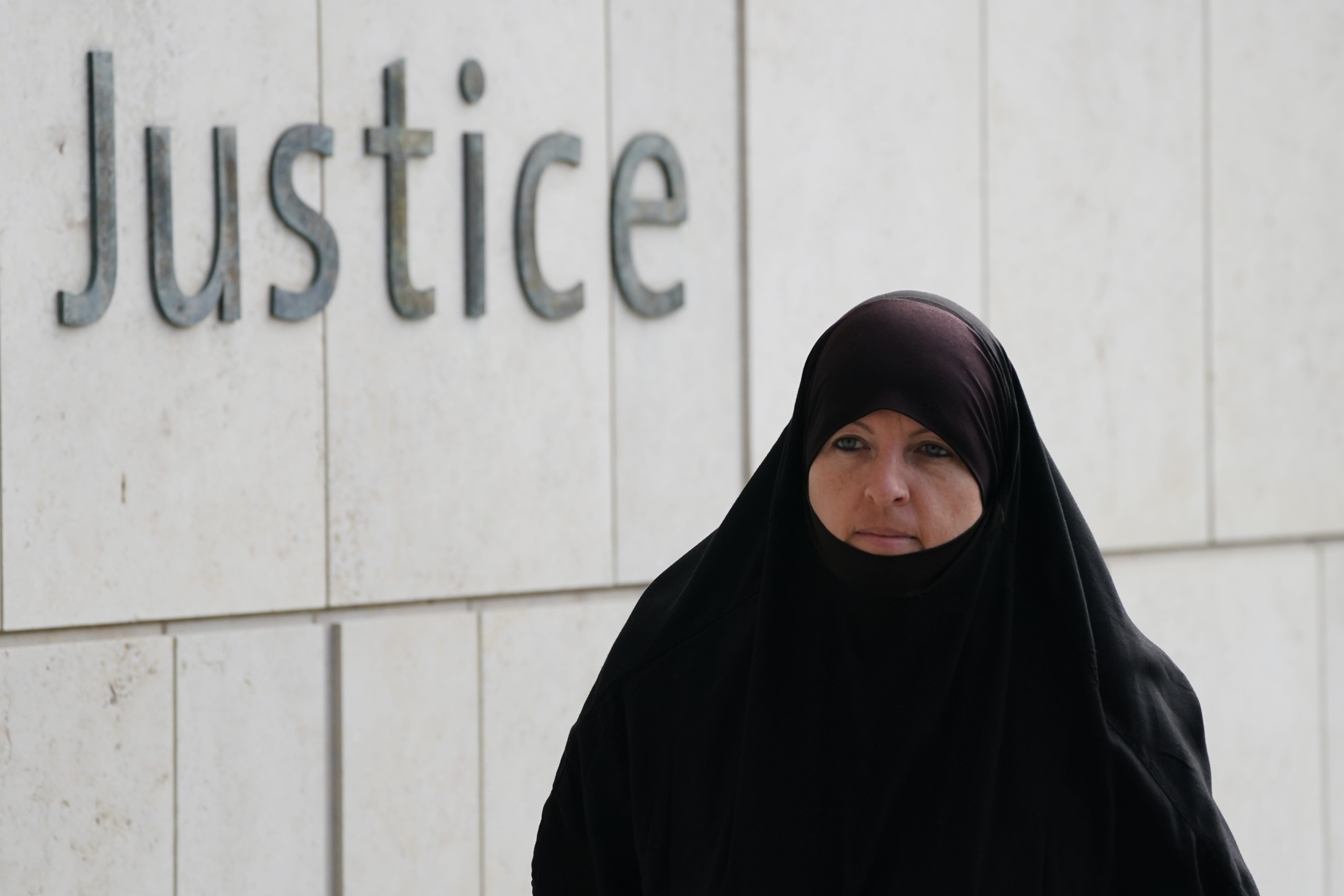Government wins challenge to tribunal ruling over ex-Irish soldier who joined IS
Before her conviction, Lisa Smith was made the subject of a Home Office-issued exclusion order, preventing her from entering the UK.

The Government has won an appeal against a tribunal’s conclusion that a UK entry ban could not be imposed on an Irish former soldier convicted of membership of the so-called Islamic State (IS) terror group.
Lisa Smith, 41, an ex-Defence Forces member, was found guilty in May last year of IS membership, but cleared of a separate charge of financing terrorism, after a nine-week trial at Dublin’s Special Criminal Court.
She lost an appeal against the severity of her 15-month prison sentence last month.
Before her conviction, Smith was made the subject of a Home Office-issued exclusion order, preventing her from entering the UK, from December 2019, on the grounds of public security.
However, Smith successfully appealed against the order at the Special Immigration Appeals Commission (SIAC), which concluded in May last year that the enforcement action in her case would be “incapable of justification”.
Home Secretary Suella Braverman appealed against the SIAC decision, saying it was wrong to decide Smith had “immunity” from exclusion.
In a ruling on Wednesday, senior judges allowed the Government’s appeal.
Smith, a convert to Islam, went to Syria in 2015 after terrorist leader Abu Bakr al-Baghdadi called on Muslims to travel there.
The legitimate aim is the protection of national security
Her father is originally from Belfast and her dispute with the Home Office centred on whether she is entitled to enter the UK as a result.
The UK has a legal right to exclude non-British citizens from EEA (European Economic Area) countries, including Ireland, but that does not cover those of dual nationality.
Smith was born in Ireland, but due to her parents being unmarried at the time, missed out on automatic British citizenship.
Her lawyers said she is not responsible for this “accident of birth” and is entitled to be treated as a British citizen.
Lady Justice Elisabeth Laing, in findings supported by Lord Justice Lewis, concluded that there had been “no difference in treatment” of Smith when she is compared with someone in similar circumstances but who was a dual British-Irish national.
The judge said: “In each case, the secretary of state used, or would use, the available tool which best neutralises the risk which each poses to national security, by ensuring that she cannot enter the United Kingdom.
“In (Smith’s) case, that is an exclusion order; and in the case of the comparator, it would be deprivation of the second citizenship.”
Lady Justice Elisabeth Laing added that if there was a difference in treatment it had “an objective and reasonable justification”.
“The legitimate aim is the protection of national security,” she said.
In Wednesday’s ruling, Lord Justice Underhill also said he would allow the appeal, but for different reasons.
The judge approached the case on the basis Smith had established she was treated differently, but noted she had chosen not to apply for British citizenship.
“In those circumstances, it does not seem to me disproportionate to treat her in accordance with her chosen status as a foreign national,” Lord Justice Underhill said, adding that it would be “extraordinary” for her to have the right to freely enter the UK as a British citizen without being willing to acquire that status.
“Ms Smith cannot have it both ways. If she wishes to be treated as a British citizen she must accept the obligations that go with that status, including allegiance to the Crown, which is owed by those who are British from birth just as much as by those who acquire nationality subsequently,” the judge said.
The court was told at a hearing in February that Smith, from Co Louth, does not want to be a British national nor dual Irish-British citizen, having previously said she identifies as Irish.
The Government’s lawyers accepted she had the right to apply to be a British national, after which it could decided whether to deprive her of citizenship and exclude her.
Smith’s lawyers claimed it was discriminatory to require her to apply for British nationality and take an oath of allegiance because it was “not consistent with her right to self-identify as Irish, a right safeguarded by the Good Friday agreement”.
